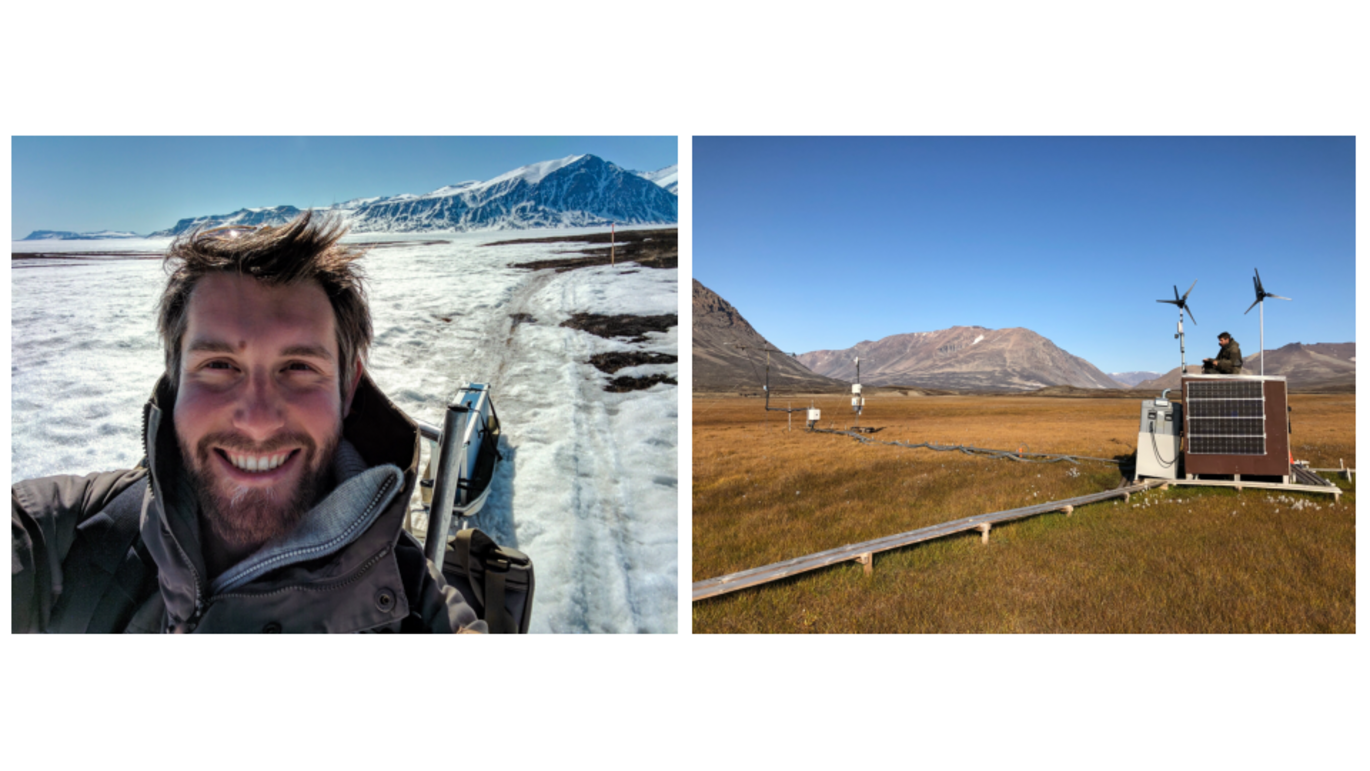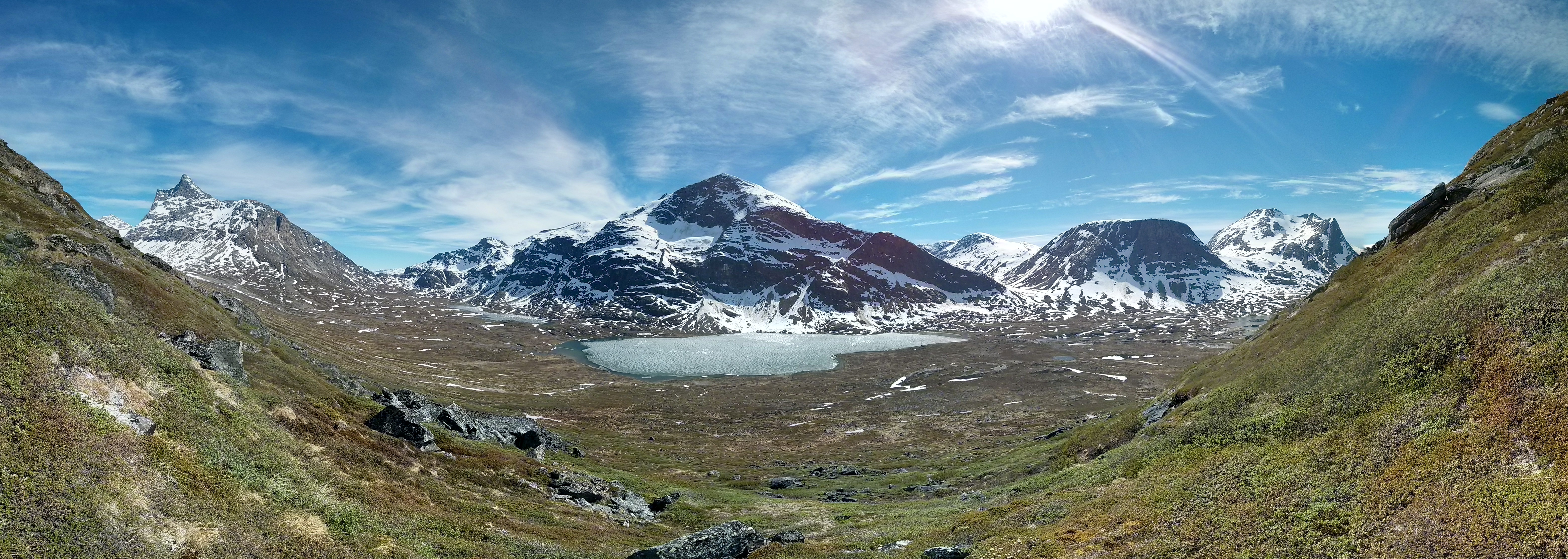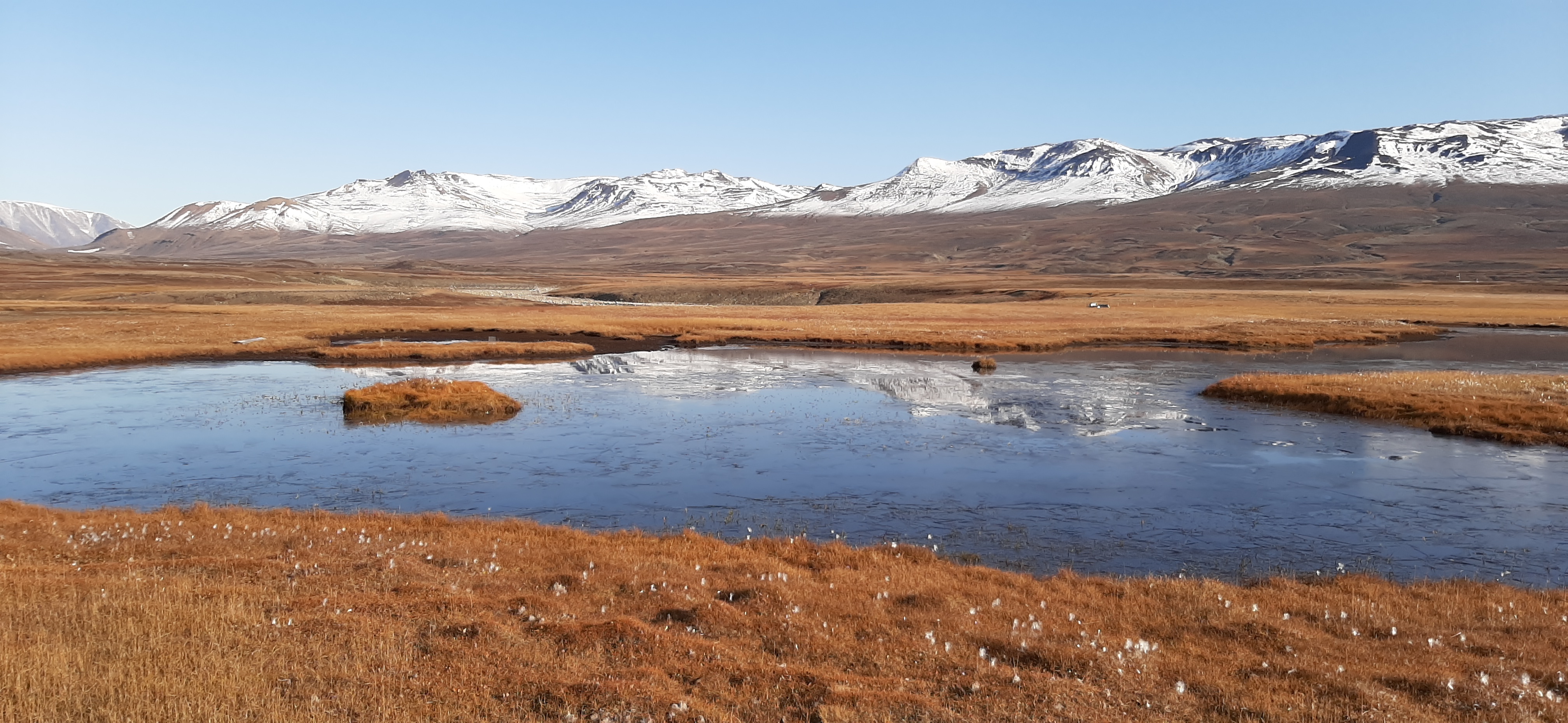GEM Scientist Of The Month - August
This Scientist Of The Month features Efrén López-Blanco. Coming from Spain he never imagined to end up so tightly bonded to the Arctic. He is an active GEM database user since 2014, and is soon starting a new position in Greenland, and just had a paper published with data from the GEM sites in Kobbefjord and Zackenberg.




Efren has always felt attracted and fascinated with the surrounding nature and perhaps that’s why he chose to study Environmental Sciences. During his Ph.D and Post doc he got to know Greenland with its catching shapes, colours, and a lot of new indescribable emerging feelings. Below you can read his story about being able to work on what he likes most and is passionate about.
-
What is your current research about?
My research is mainly focused on carbon cycle feedbacks in northern latitudes with a special emphasis on both field observations and ecosystem modelling. I believe that data-model approaches generate novel outputs, allowing us to explore mechanisms and controls that otherwise would not have been possible to address individually. I typically apply process-based modelling and model-data fusion approaches together with field data to establish robust baselines for model calibration, validation and hypothesis testing. And my goal now is to use these well-established frameworks to explore prognostic scenarios using modern ecological forecasting techniques.
Along these lines, this October I’ll start an exciting new chapter of my research career moving to Greenland thanks to a grant I’ve got from the Greenland Research Council to fund my research ideas for the next couple of years. The overall aim in this motivating project is to jointly use data and models to upscale past, present and future greenhouse gas exchange, and their links to biogeochemical processes and climate feedback effects, in the entire Greenland all the way up to 2100. To this end, extensive datasets from the joint collaboration between the GEM program and the Greenland Institute of Natural Resources will be blended with state-of-the-art carbon cycle modelling frameworks developed by the University of Edinburgh and Northern Arizona University, but also cutting edge future climate projections developed by the Danish Meteorological Institute. The ambition of this project is to find and explore common ground between the local scale field observations and the coarse resolution modern climate simulations focusing on Greenland, typically left behind in global modelling analyses due to its complexity and lack of data.
Since when did you get involved in the GEM program?
I have been an active GEM data user since the very start of my PhD back in late 2014, specially using the available datasets from the Nuuk-Kobbefjord site. I wouldn’t consider myself a pure numerical modeler - I also love to get my hands dirty in the field in order to get a richer picture about the underlying processes shaping the Arctic. Luckily, I’ve got involved with the GEM program during three beautiful fieldwork campaigns both at the Nuuk-Kobbefjord and Zackenberg sites as GeoBasis team member. Some of the activities I contributed to within Geobasis were related to the set up and maintenance of eddy covariance and automatic chamber systems measuring CO2 and CH4 fluxes, collection of biomass samples and soil cores, measurements of active layer depth, and collection of river samples among other things. Even though the field campaigns may not have always provided an explicit direct input to my research work, it is always worth it to go and enjoy the experience.
What is the biggest challenge in working in the Arctic or maybe as a scientist in general?
The Arctic is a very dynamic ecosystem, constantly changing and experiencing different conditions. You have to be always open minded and ready for unforeseen events. For example, from a fieldwork planning perspective, conditions may challenge your initial plans. I still remember how my very first fieldwork campaign was seriously delayed due to an unusual late end of the snowmelt period and start of the growing season. But that is the exciting part, you simply need to be flexible and ready for action! On top of that, in the Arctic you have to deal with harsh conditions in very isolated areas, where the lack of remote access complicates the gathering of data without gaps. Once you are out there, you really appreciate as data user and modeller how much effort is put in place for each single time series stored in ready-to-use databases.
Which forms of outreach do you find most effective?
I primarily focus on peer-reviewed scientific papers and key international conferences, but I am also slowly paying further attention to more up-to-date short-type communication platforms such as Twitter. Moreover, in this coming second postdoc, I will put a special emphasis in the implementation of an ambitious educational component mentoring MSc students together with the Greenland Institute of Natural Resources and Aarhus University to promote dissemination and outreach tightly connected with the Greenlandic society.
What is the single biggest leap of technology you noticed in your field of research in the most recent years and how did it change the it?
There is nowadays an increasing tendency towards higher computational demanding integrations between in-situ field measurements and numerical modelling to assess the consequences of climate change in the Arctic carbon budget. Modern data-assimilation systems are becoming attractive frameworks to digest the increasing number of re-analysis products, remote sensing- and observational-based products, which all are difficult to integrate in traditional modelling frameworks. These model-data fusion approaches are suitable candidates to successfully fill knowledge gaps and improve process-based understanding, estimate periods where data are not available, and explore future climate scenarios.
What is your most rewarding moment as a scientist?
From a scientific context, if feels great when you come up with a research project completely from scratch and manage to publish it after so much work bypassing all sort of complications and challenges on the way. Similarly, I find very rewarding when you discover and learn unexpected things that were not imagined in your original plan. In a more general context, I truly appreciate the radio silence and peace while I am in the middle of nowhere up north in Greenland. I always find these 3-4-week period extremely satisfying and I frequently tell myself how lucky I am that my office space is the wilderness right in front of me.
For the future (Arctic) research, what would be your hopes and aspirations, maybe also in the context of climate change solutions?
As an ecosystem modeller one of my strongest motivations is to contribute to the reduction of the great knowledge gaps and model uncertainties we still have around the carbon cycle feedbacks, especially regarding soil carbon storage and respiration processes. It is always interesting to see elegant large-scale maps and future projection analyses of net ecosystem exchange, but these have inevitable large uncertainties, both in terms of sign (carbon sink/source?) and magnitude. Our work should focus on the better understanding of current trends, sensitivities and underlying processes to be able to calibrate the set of equations solved by computers addressing the structural (plant growth, competition, and turnover) and biochemical (carbon, water and nutrient cycling) responses to climate variability. My hope is that less uncertain projections will be better understood and prioritized by high level decision makers to develop effective recommendations for sustainability and mitigation.
Do you have an advice to the new generation of younger scientists in the making or the kids striking for climate?
Beyond what few individuals are still recklessly denying, the Earth System is changing very fast with very clear ongoing warming trends, triggering a series of processes and negative impacts that are not fully understand yet. But we, as scientists, need to raise our voice objectively against any economical related interest, and perseverate in the search for solutions in the near future with positivism, curiosity and determination. There is an enormous room for improvement for us now and the coming generations to bridge the gaps between politics and climate change related research.
Contact Efrén: elb@bios.au.dk @_LopezBlanco